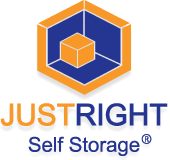Whether you’re being audited, applying for a loan or simply organizing your day to day finances better, you need an effective way to store financial documents. If you don’t have some sort of system set up you can become overwhelmed when the bills and important papers start to pile up and financial errors go unnoticed. No one wants to get caught up in a financial crisis. Here’s how to create a storage system that works. You can also move your documents to our secure Ottawa storage facility downtown to keep your financial documents stored safely in a climate controlled storage unit.
Create a system
Documents that you handle often such as current bills or warranties should be kept in an active file or folder, so that they can be easily accessed. Those that you don’t really need on a regular basis but don’t want to throw away just yet, should be kept in folders or boxes. Whatever you decide to do keep it simple. The more complicated the system, the less likely you are to maintain it.
Know what to keep
How long you keep certain financial documents depends on the document itself:
- Home-buying records should be kept for as long as you own the property.
- Bank statements should be kept for one year unless you use them to support tax deductions.
- Credit card records should be kept until your account is paid off.
Items such as cancelled checks for non-deductible items can be thrown away. Tax records should be kept for at least seven years from the filing date.
Look beyond the paper
Use technology to your advantage. If something catastrophic were to happen like a natural disaster, all of that paper would end up destroyed. Create an electronic copy by scanning documents onto a hard drive or uploading them to a cloud-based service.
Consider Safety
If you haven’t set up something electronic and keep paper copies of your documents, place them in a fireproof and waterproof safe. You want to do this even if they’re stored in a self-storage unit because self-storage facilities are not immune to catastrophes. However, there are safety considerations to keep in mind when storing documents electronically. For example, always be sure to password-protect all information and important documents.
Have a backup offsite
With the threat of natural disasters it’s risky for you to store the only copy of financial documents such as tax forms, investment documents and mortgage papers at your home. Keep a copy at another location.
Track what you do
Having a system for storing your financial documents makes no sense if you can’t find documents when you need them. Create a list that explains where everything and another family member should also have access to that list in the event something happens to you.
Keep it up
If you’re not using it regularly the system won’t work. Make sure you create a system for the electronic documents you store so that you can regularly scan new financial documents that you want to save. If you have a paper-based filing system, don’t let new documents pile up.
